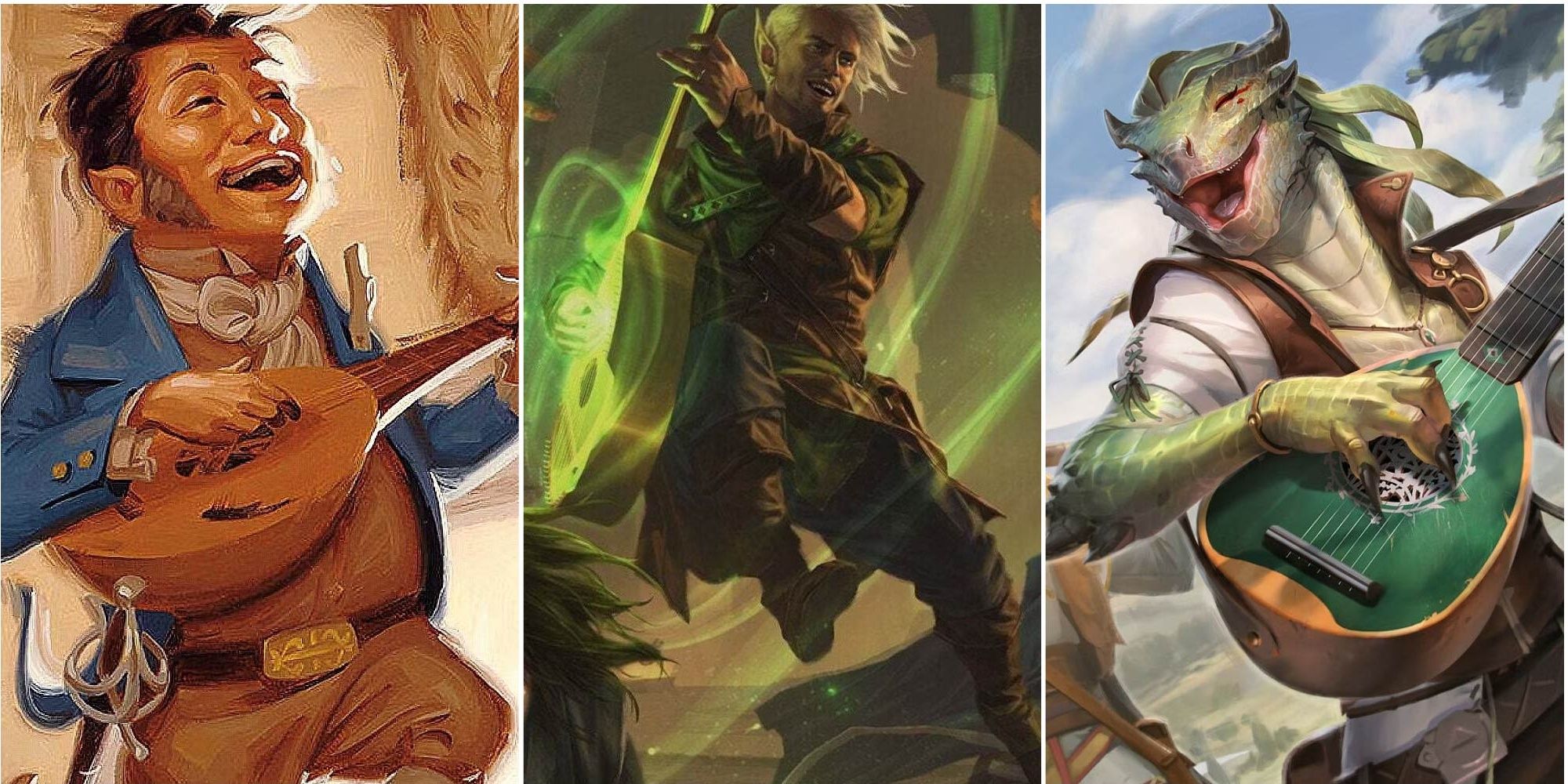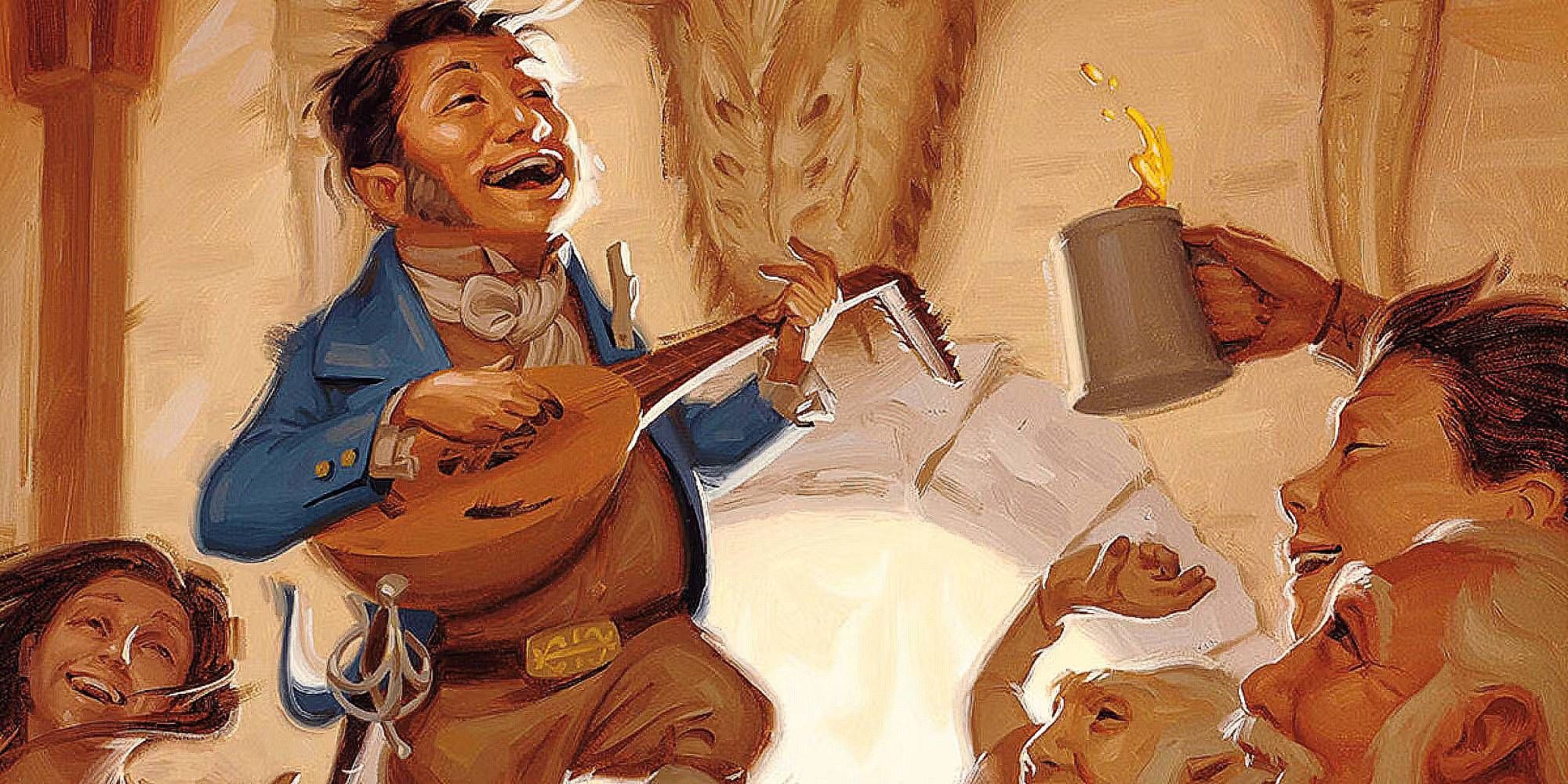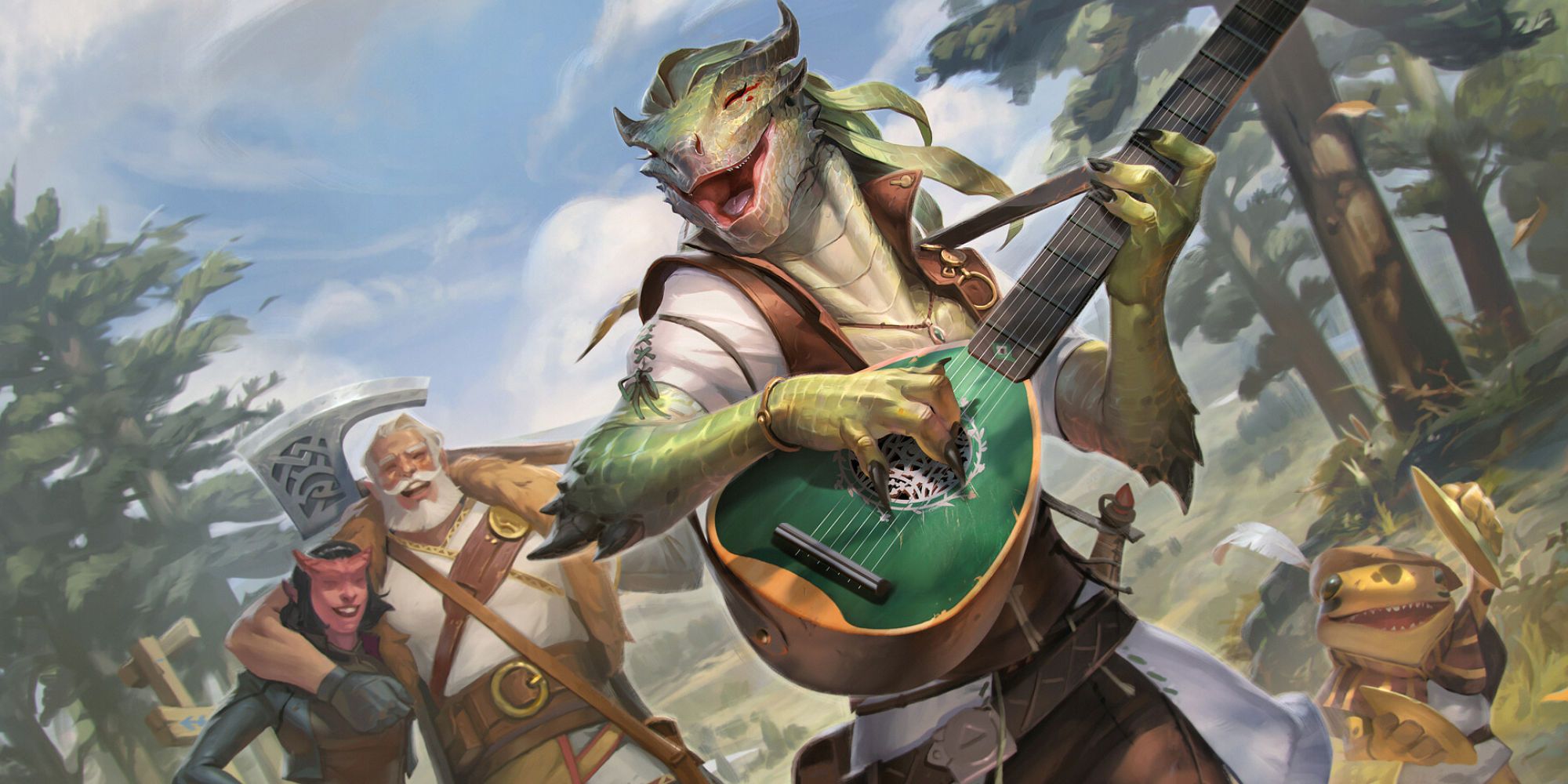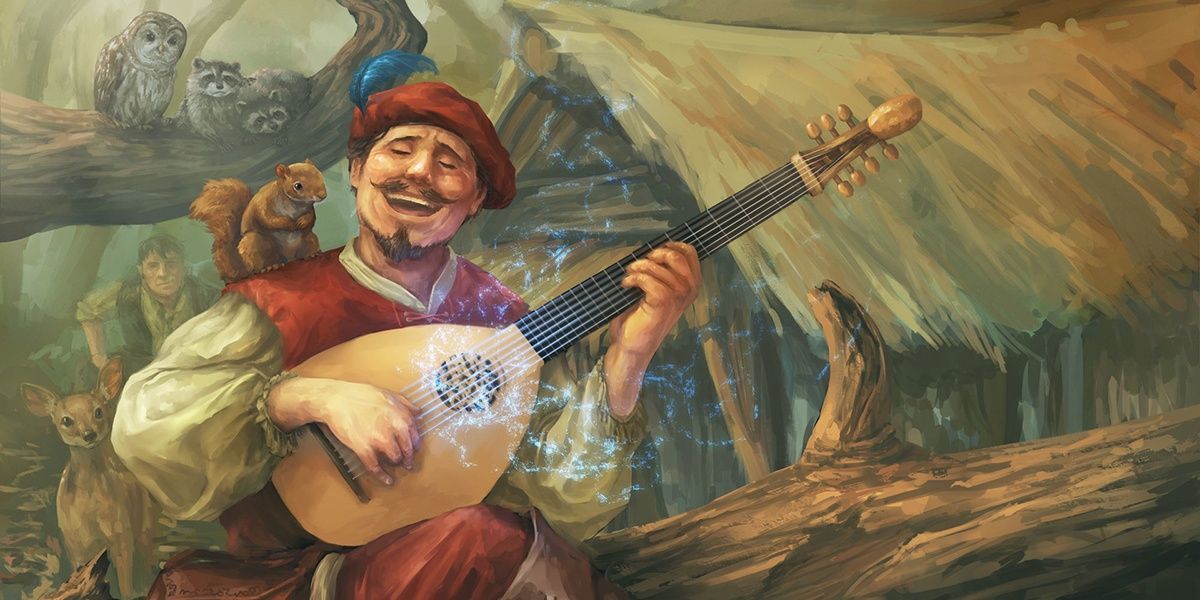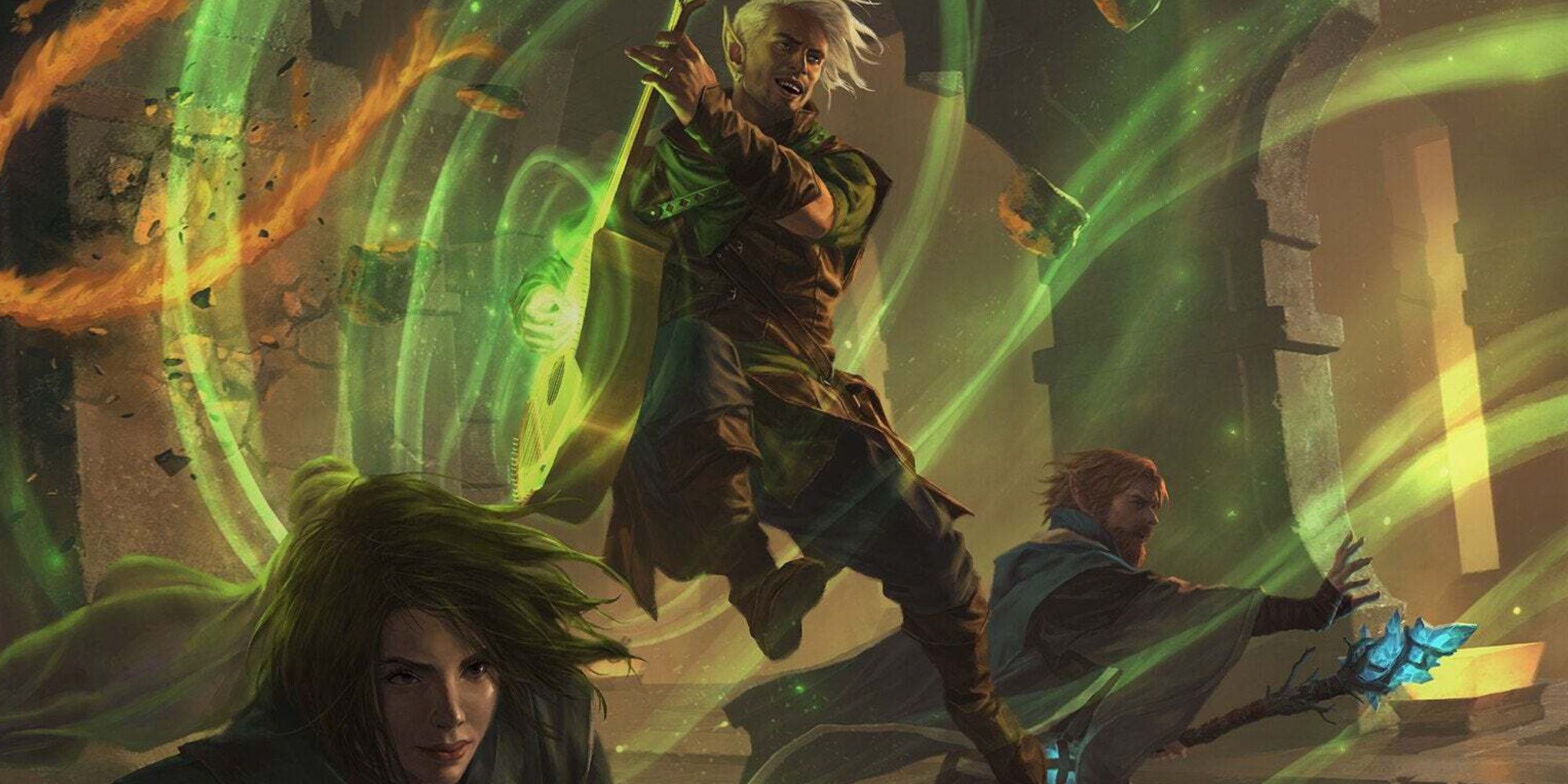One D&D continues to show us its ideas through Unearthed Arcana. Now, we can see how some classes are going to work. All classes are separated into categories; The Experts, which are Bards, Rangers, and Rogues, The Mages, which are Wizards, Sorcerers, and Warlocks, The Priests, which are Clerics, Druids, and Paladins, and finally, the Warriors, which are The Barbarians, Fighters, and also Rogues. However, they've only released their ideas for the Expert classes so far, with a focus on having expertise.
Here, we're going to tell you about the biggest changes that were given to our favorite musical class (perhaps for being the only one, but still).
4 Prepared Spells And Spell List
Time to study. Bards are no longer classes with known spells. Instead, you prepare them. What does that mean, though?
When you have known spells, it means you learn them intuitively. So, if you can choose five first-level spells, you just take them from the spell list, and they're yours to keep. Prepared spells work differently, though. Technically speaking, you know every spell from your spells list, but you can only have some of them ready to use, which is determined by your level and whatever ability score your class uses for spells. They can also change which spells are prepared every time they do a long rest, so you have the opportunity of removing spells you don't like, or preparing spells you believe you might need in the near future. You can learn more about it here. Magical Secrets was affected by these changes too.
On a final note, it's worth mentioning that there are no longer class-specific spell lists. In other words, there's no bard spell list anymore. Instead, you have three lists: Arcane, Divine, and Primal spells. Bards use the first one for their spells, and they can only get Divination, Enchantment, Illusion, or Transmutation spells. So keep in mind that the available spells for you will change. You'll also get some spells that are not from the Arcane list thanks to Song of Restoration (such as Healing Word, for example), an ability that replaces Song of Rest.
3 Bardic Inspiration
Your special inspiration just got quite a few changes. First, the amount of bardic inspirations you have is the same as your Proficiency Bonus, so your Charisma no longer decides that. But the key part here is that it is no longer used on your Bonus Action; instead, you use it on a Reaction, in case a creature you can see or hear fails an attack roll, ability check, or saving throw.
That means you'll no longer waste it on allies who realized they won't need your inspiration boost, as you'll only use it when needed. As a bonus, on level seven, if the creature rolls a one on your Bardic Inspiration, the use is not expended, so you won't waste it. And, if the person rolls a one and that was exactly the amount they needed, not only will they pass the test, but you won't spend your inspiration since you've rolled a one.
And that's not all. If another creature gets hurt (and you can also see or hear them), you can also use your Bardic Inspiration on a reaction and heal said creature by the amount you just rolled. Perfect in case an ally falls unconscious.
2 Removed And Rearranged Abilities
From here on, most features remain more or less the same, or the changes are so little they're not worth mentioning. But there are some things that were removed, or put into different levels. For starters, proficiency with hand crossbows, longswords, and rapiers are gone, leaving only the shortsword (which is now a simple weapon).
The first part of Expertise now comes at level two, replacing Jack of All Trades, which is now at five. Countercharm was removed completely, and Superior Inspiration comes at level 18 now. These are simply the most noticeable changes, but it is important to keep in mind that things will come in a different order than what we're accustomed to.
1 Epic Boons
This change actually affects all three Expert classes, and judging by how they've done it, will likely affect all others. Epic Boons are a feature from the Dungeon Master's Guide, which contain powerful abilities or boosts to their user.
In 5th edition, it states that only level 20 characters can get them, and it falls to the DM to decide when or if a character will get one of them, as well as which of them the character will get. Well, times have changed. They're still exclusive to level 20, but they work similarly to feats; when you reach this level, you can choose one from the list and take it for yourself.
Long story short, it is now automatically given to any max level character (who doesn't multiclass, because you do need to reach level 20 with one class), and you also get to choose which of them you'll get rather than having the DM choose it for you.

